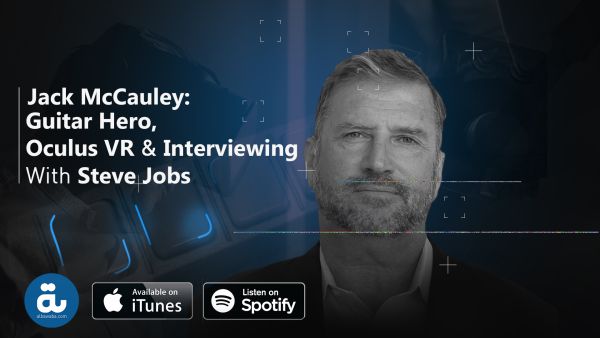From Activision, to Atari, Nintendo, Microsoft and Sony, Jack McCauley’s work spans the history of gaming. In the 1980s he received a US Defense Department scholarship to study micro-electrical mechanical systems at Berkeley, a university where he lectures today.
Jack McCauley’s work would help to develop USB drivers, kernel mode drivers, the first scrolling feature for a computer mouse, and the Guitar Hero controller, which made gaming both more tactile and accessible. Then there is his work on the Oculus Rift Dev Kits I and II, before the VR headset company was sold to Facebook US$2.3 billion in cash and stock, in March 2014.
Then there is his work on the Oculus Rift Dev Kits I and II, before the VR headset company was sold to Facebook US$2.3 billion in cash and stock, in March 2014.
In this episode we talk about hardware, education and the early Oculus kick-starter campaign, which probably remains the most famous crowd-funding campaign in internet history (and the most economically successful). Coincidentally, the internet campaign that helped make Oculus part of cyberspace culture was filmed at Jack McCauley’s house - the same location where we recorded this podcast episode. There’s also an anecdote about an interview with Steve Jobs that didn’t go all that well.
McCauley’s work would help to develop USB drivers, kernel mode drivers, the first scrolling feature for a computer mouse, and the Guitar Hero controller
Since COVID-19 dozens of indicators demonstrate surging revenue for companies such as Epic Games, Apple and new contenders such as Roblox in gaming and early-stage metaverse worlds. Statista predicts that the VR market will grow from US $27 billion in 2018 to US $209.2 billion by 2022 next year. Beyond the numbers, Jack McCauley’s story represents a sort of untold history of Silicon Valley: with gaming playing a more central role than many accounts often portray.









